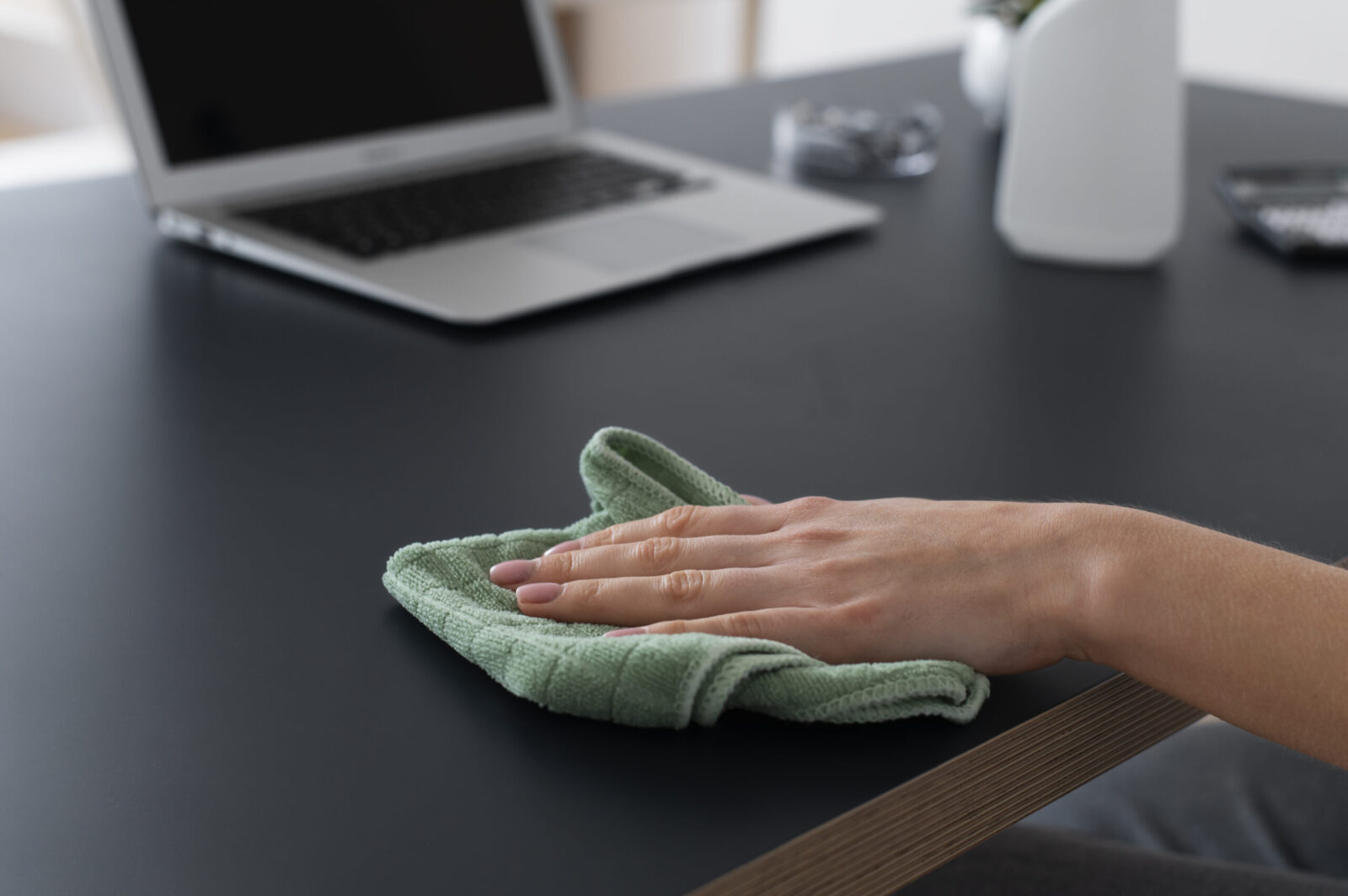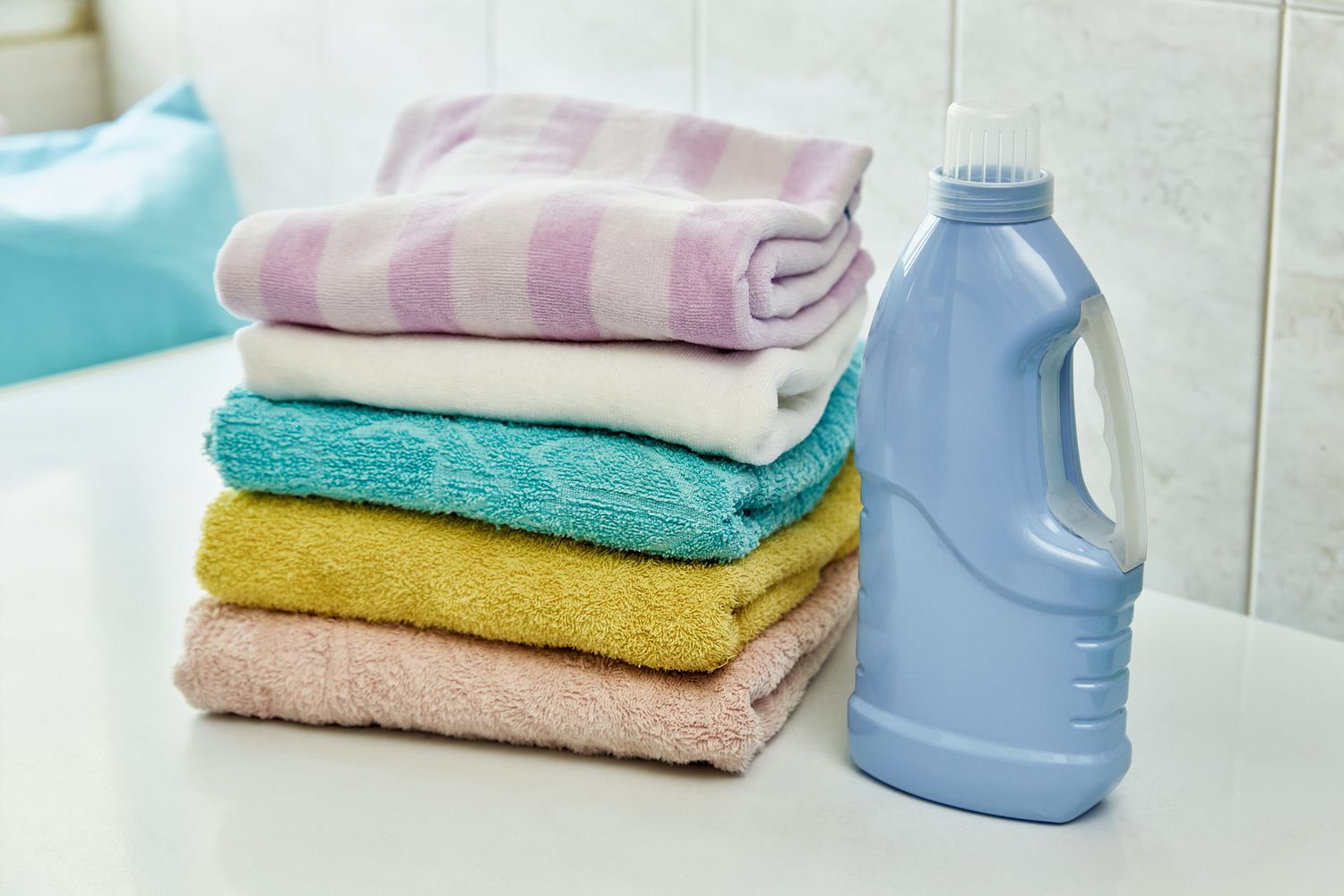
Antistatic Cleaners: Selecting the Right Cleaning Products
Looking to maintain a clean, static-free environment for sensitive equipment? Whether you’re in electronics, telecommunications, or aerospace, choosing the right...

Get 20€ off on your first order!
In industrial or office settings, the choice of cleaning wipes and cloths is very important for keeping things clean. The right materials can make things run more smoothly, keep people safer, and make sure that cleanliness rules are followed. This guide shows you the most important things to think about when picking cleaning cloths and wipes for work, focusing on their features, how they can be used, and the best ways to do things in a certain field.
The material that cleaning cloths and wipes are made of has a big effect on how well they work. Some common materials are:
Different cleaning jobs might need different cleaning products. Make sure the wipes or cloths you pick can be used with the cleaning products you want to use them with. For example, acids can break down some materials, which can make them less useful and shorten their life.
The amount of liquid that a cleaning cloth or wipe can hold is called its absorption. For jobs like cleaning up spills or disinfecting surfaces, you need a cloth that can soak up a lot of liquid. You should also think about how strong the material is. It should not tear or break when used, especially in places that are rough.
Think on the particular jobs for which wiping cloths and towels will be needed. If you need a cloth to polish surfaces, for instance, use a softer substance free of lint. If the work calls for thorough cleaning, choose a thicker, more abrasive cloth.
For everyday cleaning, pick cloths that are soft but strong. Microfiber cloths work great for this because they get rid of dust and dirt without damaging surfaces. Also, cotton rags can be useful for many things, especially after being wet with a cleaner.
In environments where hygiene is paramount, such as healthcare facilities or food processing plants, the use of disposable wipes may be advisable. These wipes are often pre-saturated with disinfectants, ensuring effective microbial control while providing convenience.
In industrial settings, you need heavy-duty cloths. To clean machines, tools, and other things, non-woven materials and synthetic choices work great. The purpose of these materials is to clean more stubborn things and they can handle oils and acids.
Think on the particular jobs for which wiping cloths and towels will be needed. If you need a cloth to polish surfaces, for instance, use a softer substance free of lint. If the work calls for thorough cleaning, choose a thicker, more abrasive cloth.
As people become more aware of environmental problems, it is important that cleaning goods are eco-friendly. Look for wipes and cloths that are made from reusable materials or that can be washed and used more than once. This method cuts down on waste and encourages efficiency.
Lint-free cloths are essential in professional settings where the presence of lint can interfere with operations, such as in clean rooms or when working with sensitive electronics. Ensure that the materials you select are specifically labeled as lint-free.
Consider using antibacterial cloths and wipes in places where cleanliness is important. These can stop germs and other pathogens from growing, which can make the workplace safer.
Check out various cleaning clothes and wipes from our collection of products.
When you use cleaning wipes and cloths, make sure you clean the right way. To clean clothes, dampen them with the right cleaning solution, but don’t let them get too wet. Too much liquid can cause streaks. Cleaning should be done in a planned way, starting at the top and making your way down to keep dirt from falling on areas that have already been cleaned.
To keep things clean, make it a habit to replace throwaway wipes often. People should throw away throwaway wipes after using them so that germs don’t spread. Reusable cloths will keep working well as long as you wash them regularly according to the maker’s instructions.
Making sure that everyone on staff knows how to use cleaning wipes and cloths correctly is important. This means knowing what kinds of clothes are best for different jobs, how to use them properly, and how important it is to follow good cleaning habits.
Clean cloths and wipes should be kept in a clean, dry place so they don’t get dirty. Make sure that used clothes dry all the way after being washed so that mold and germs don’t grow on them. Single-use wipes work best when they are covered when not in use. This keeps them wet and makes them last longer.
Picking the right cleaning wipes and cloths for the job is a big part of keeping the workplace safe and clean. Companies can choose the best things for their needs by looking at the materials, how well they clean, how absorbing they are, how big they are, and what they need to be used for.
Stressing eco-friendliness, lint-free qualities, and antibacterial features makes these cleaning tools even more effective. Best practices for using, replacing, training, and storing cleaning cloths and wipes will keep them useful for keeping workplaces and industries in Europe clean.
Adhering to these rules is the best way for businesses to make sure they meet workplace health standards and keep their workers safe.
Thank you! You've signed up for our newsletter.



















Looking to maintain a clean, static-free environment for sensitive equipment? Whether you’re in electronics, telecommunications, or aerospace, choosing the right...

When it comes to enhancing food service efficiency and customer satisfaction, Disposable Chopsticks are indispensable tools. Whether you run a...

Choosing the right fabric softener doesn’t have to be complicated. This guide is here to help you find the perfect...

Looking to maintain a clean, static-free environment for sensitive equipment? Whether you’re in electronics, telecommunications, or aerospace, choosing the right...

When it comes to enhancing food service efficiency and customer satisfaction, Disposable Chopsticks are indispensable tools. Whether you run a...

Choosing the right fabric softener doesn’t have to be complicated. This guide is here to help you find the perfect...
Get 20€ off on your first order!
Save 30% by buying directly from brands, and get an extra 10€ off orders over €100
Save 30% by buying directly form brands, and get an extra 10€ off orders over €100